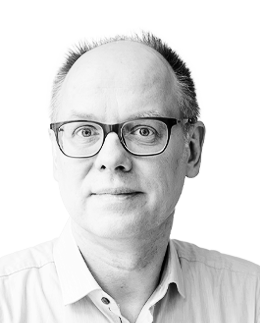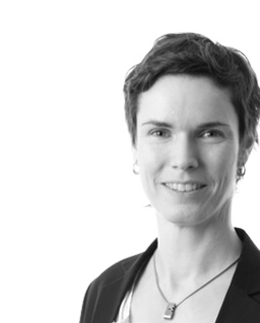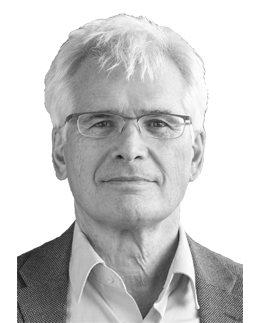Dr. Torger Möller studierte Soziologie, Informatik, Medizinsoziologie und Volkswirtschaftslehre an den Universitäten Marburg und Hamburg. Nach seinem Studium war er von 1999 bis 2003 am Institut für Wissenschafts- und Technikforschung der Universität Bielefeld tätig. An der Berlin-Brandenburgischen Akademie der Wissenschaften arbeitete er von 2003 bis Ende 2007 in der BMBF-Förderinitiative "Wissen für Entscheidungsprozesse – Forschung zum Verhältnis von Wissenschaft, Politik und Gesellschaft". Während dieser Zeit hielt Torger Möller Lehrveranstaltungen an der Charité. Anschließend war er in der Abteilung Risikokommunikation des Bundesinstituts für Risikobewertung tätig. Im Jahr 2008 wurden zentrale Ergebnisse seiner Doktorarbeit mit dem zweiten Platz des Nachwuchspreises des Instituts Mensch, Ethik und Wissenschaft ausgezeichnet. Von 2009 bis 2011 arbeitete er im Center for Cluster Development der Freien Universität Berlin. Seit April 2011 ist Torger Möller Mitarbeiter am DZHW (vormals iFQ).

Dr. Torger Möller
Abteilung Forschungssystem und Wissenschaftsdynamik
wissenschaftlicher Mitarbeiter
- 030 2064177-30
- 030 2064177-99
Wissenschaftliche Forschungsgebiete
Wissenschaftsforschung, Forschungsevaluation, Governance der Wissenschaft, Bibliometrie, Forschungsförderung und Begutachtung
Liste der Projekte
Liste der Publikationen
Gender bias in grant allocation shows a decline over time.van den Besselaar, P., Möller, T., Mom, C., Cruz-Castro, L., & Cruz-Castro, L. (2024).Gender bias in grant allocation shows a decline over time. In STI 2024 (Hrsg.), Proceedings of the 28th International Conference on Science, Technology and Innovation Indicators (STI2024). Berlin: STI2024. https://doi.org/10.5281/zenodo.14176637 |
Are there factors that influence the quality of funding acknowledgements in publications?Möller, T., Scheidt, B., & Meier, A. (2024).Are there factors that influence the quality of funding acknowledgements in publications? In STI2024 (Hrsg.), Proceedings of the 28th International Conference on Science, Technology and Innovation Indicators (STI2024). Berlin: STI2024. https://doi.org/10.5281/zenodo.14174157 |
Funding decision and applicants' careers. A case study of an early career grant.Möller, T. (2024).Funding decision and applicants' careers. A case study of an early career grant. In STI2024 (Hrsg.), Proceedings of the 28th International Conference on Science, Technology and Innovation Indicators (STI2024). Berlin: STI2024. https://doi.org/10.5281/zenodo.14171970 |
Publikationen aus DFG-geförderten Projekten.Meier, A., Mittermaier, B., Möller, T., Ottaviani, M., Scheidt, B., & Stahlschmidt, S. (2023).Publikationen aus DFG-geförderten Projekten. Praxis und Nutzbarkeit von Funding Acknowledgements. Bonn: DFG. Abstract
Die vorliegende Studie entstand im Auftrag der Deutschen Forschungsgemeinschaft (DFG) und wurde durch das Deutsche Zentrum für Hochschul- und Wissenschaftsforschung (DZHW) und das Forschungszentrum Jülich (FZJ) gemeinschaftlich durchgeführt. Ausgehend von den DFG-Vorgaben wurde der Indikator Funding-Acknowledgement-Güte (FA-Güte) entwickelt. Anhand von drei Güteklassen (regelkonforme Nennung, nicht regelkonforme Nennung und keine Nennung) misst er für jede Publikation, inwiefern die Geförderten den DFG-Vorgaben nachgekommen sind. |
The Long and Winding Road to Excellence: The German Case.Möller, T., & Hornbostel, S. (2023).The Long and Winding Road to Excellence: The German Case. In M. Yudkevich, P. G. Altbach, & J. Salmi (Hrsg.), Academic Star Wars: Excellence Initiatives in Global Perspective (S. 177-201). Cambridge, Massachusetts: The MIT Press. https://doi.org/10.7551/mitpress/14601.003.0012 |
Synthesis report on gender differences in grant application behaviour.Möller, T., Holzinger, F., Schön, L., Wedening, P., & Deixelberger, B. (2023).Synthesis report on gender differences in grant application behaviour. Berlin: DZHW. Abstract
This deliverable provides a summary of the findings of Work Package 7 of the GRANteD project. The results are based on seven online surveys carried out among researchers in six European countries. In Austria, Ireland, Poland, Slovakia and Sweden, applicants to specific research funding programs were surveyed. In Germany, a representative survey was conducted among academics as potential applicants at universities (DZHW Scientist Survey). In addition, the data of doctoral graduates of the DZHW PhD panel were analyzed. The overall findings indicates that there are hardly any gender differences in application behavior of academics. |
What to do against gender bias in grant allocation?van den Besselaar, P., Mom, C., Cruz-Castro, L., Sanz Menéndez, L., Möller, T., ... & Husu, L. (2023).What to do against gender bias in grant allocation? Amsterdam: TMC. Abstract
This text summarized the recommendations that can be distilled from the research done in the GRANteD project, and from the interactions with the Stakeholder Committee, the Scientific Advisory Board, and at other exchanges with researchers in the field and with stakeholders in different interactions. |
Identifying and explaining gender differences in grant decision outcomes: The results of the case studies.Möller, T., van den Besselaar, P., Cruz-Castro, L., Sanz Menéndez, L., Sandström, U., & Mom, C. (2023).Identifying and explaining gender differences in grant decision outcomes: The results of the case studies. Berlin, Amsterdam: DZHW / TMC (nicht zur Veröffentlichung vorgesehen). |
Are there gender differences in the number of research proposals submitted?Möller, T. (8. August 2023).Are there gender differences in the number of research proposals submitted [Blogbeitrag]. Abgerufen von https://www.granted-project.eu/blogpost-9-are-there-gender-differences-in-the-number-of-research-proposals-submitted/ |
Determinants of cognitive mobility.Mom, C., Möller, T., & van den Besselaar, P. (2023).Determinants of cognitive mobility. In ISSI (Hrsg.), Proceedings of ISSI 2023 - the 19th International Conference of the International Society of Scientometrics and Informetrics (ISSI 2023). Bloomington, United States: International Society for Scientometrics and Informetrics. |
Do female academics submit fewer grant applications than men?Möller, T. (2023).Do female academics submit fewer grant applications than men? 27th International Conference on Science, Technology and Innovation Indicators (STI 2023). https://doi.org/10.55835/644303d4b2b5580ba561581a (Abgerufen am: 21.04.2023). https://doi.org/10.55835/644303d4b2b5580ba561581a Abstract
The state of the research on grant application behaviour is that female academics submit fewer proposals than men. This study points out that it is methodologically challenging to draw this conclusion. We know a lot about applicants, but little about the pool of potential applicants as the underlying population. We use a random sample of academics as potential applicants to investigate the grant application activity of male and female researchers. The results show that when an appropriate benchmark is applied (in this case, controlling for academic status and research area), no significant gender differences in grant applications can be found. |
Two Longitudinal Papers Concerning Gender Disparities in Science Careers.Sandström, U., Sandström, E., Mom, C., van den Besselaar, P., & Möller, T. (2022).Two Longitudinal Papers Concerning Gender Disparities in Science Careers. Stockholm, Amsterdam, Berlin: Forskningspolitik Sverige AB, TMC BV, DZHW (nicht zur Veröffentlichung vorgesehen). |
What is researcher independence and how can it be measured?Möller, T., van den Besselaar, P., & Mom, C. (2022).What is researcher independence and how can it be measured? 26th International Conference on Science, Technology and Innovation Indicators (STI 2022), 1-8. https://doi.org/10.5281/zenodo.6975311 |
Liste der Vorträge & Tagungen
seit 01/2016
Wissenschaftlicher Mitarbeiter am Deutschen Zentrum für Hochschul- und Wissenschaftsforschung, Abteilung 2 Forschungssystem und Wissenschaftsdynamik
04/2011 - 12/2015
Institut für Forschungsinformation und Qualitätssicherung (iFQ)
07/2009 - 03/2011
Freie Universität Berlin, Center for Cluster Development (CCD)
03/2008 - 06/2009
Bundesinstitut für Risikobewertung (BfR), Abteilung "Risikokommunikation"
11/2003 - 12/2007
Berlin-Brandenburgische Akademie der Wissenschaften (BBAW), Geschäftsstelle der BMBF-Förderinitiative "Wissen für Entscheidungsprozesse - Forschung zum Verhältnis von Wissenschaft, Politik und Gesellschaft"
04/1999 - 10/2003
Universität Bielefeld, Institut für Wissenschafts- und Technikforschung (IWT), wissenschaftlicher Mitarbeiter und Promotionsstipendiat im DFG-Graduiertenkolleg "Genese, Strukturen und Folgen von Wissenschaft und Technik"
1998 - 1999
Freiberufliche Tätigkeit im Bereich Marketing und Meinungsforschung
1997
Magisterabschluss Soziologie (Universität Hamburg)






